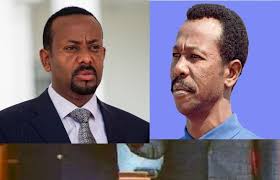Ethiopia's Endless Struggle: From the Derg's Feudal Atrocities to Abiy Ahmed's Reign of Terror
INTRODUCTIONEthiopia, a land of rich history and vibrant culture, has been plagued by conflicts that defy humanity. The Derg regime's feudal atrocities against the Amhara people left a trail of despair, and now, Colonel Abiy Ahmed's extremist zeal continues this cycle of violence. As the country struggles to find peace, it's essential to examine the roots of this turmoil and the key players involved.
KEY POINTS AND ANALYSIS
The Derg regime, known for its brutal suppression of opposition, unleashed horror on the Amhara people, leaving behind a legacy of suffering. In contrast, Abiy Ahmed, once hailed as a peace laureate, has become an architect of war, perpetuating violence and terror in Ethiopia. Despite their differences, both regimes share a common thread – a disregard for human life and a thirst for power. The Tigray People's Liberation Front (TPLF), a left-wing ethnic nationalist group, has played a significant role in shaping Ethiopia's political landscape. Founded in 1975, the TPLF grew to become the most powerful armed liberation movement in Ethiopia, eventually leading a political coalition that ruled the country for decades. However, its restructuring of Ethiopia into an ethnic federal state has fueled civil conflicts, and its designation as a terrorist organization has further complicated the situation.
CONTEXT AND BACKGROUND INFORMATION
The TPLF's rise to power was marked by a 15-year-long war against the Derg regime, which was eventually overthrown in 1991. The TPLF-led government dominated Ethiopia's federal administrations, controlled key economic resources, and amassed billions in foreign aid and loans. However, its grip on power began to slip in 2018, and the party was eventually designated as a terrorist organization by the Ethiopian government. The Tigray War, which began in 2020, has further destabilized the region, with the TPLF experiencing severe internal divisions and a rise of hardline factions. The African Union-brokered peace agreement in 2022 brought an end to the war, but the TPLF's future remains uncertain.
CONCLUSION OR FUTURE IMPLICATIONS
As Ethiopia navigates its complex political landscape, it's essential to acknowledge the past and learn from it. The Derg regime's atrocities and Abiy Ahmed's reign of terror serve as stark reminders of the devastating consequences of unchecked power and ethnic nationalism. The TPLF's rise and fall from power highlights the need for inclusive governance and dialogue. As the country moves forward, it's crucial to prioritize national unity and reconciliation. The international community must also play a more active role in promoting peace and stability in Ethiopia. Only through collective efforts can we hope to bring an end to the cycle of violence and terror that has plagued this beautiful nation for far too long.
